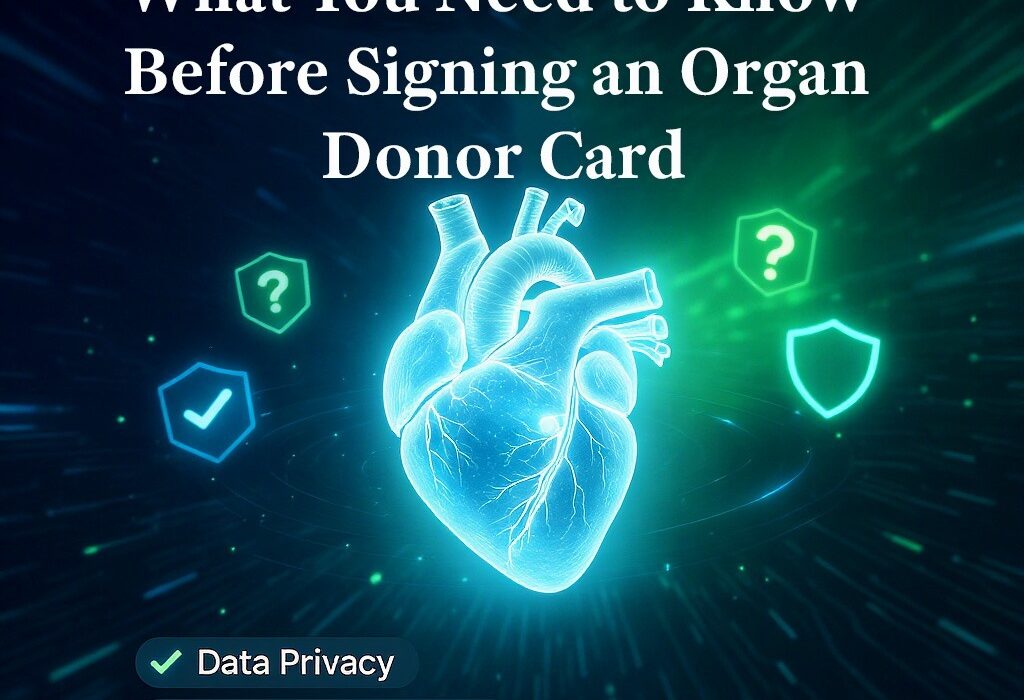Thinking about becoming an organ donor is one of the most selfless decisions you can make. It’s a chance to leave behind a legacy of life, offering hope to countless individuals and their families. But before you take that incredible step and sign up for an organ donor card, it’s natural to have questions. This guide will walk you through everything you need to know before signing an organ donor card in India, helping you make an informed and confident choice.
What is an Organ Donor Card and Why is it Important?
An organ donor card is a simple, yet powerful document that expresses your wish to donate your organs and tissues after you pass away . Think of it as a will for your organs. While it’s not a legally binding contract on its own, it serves as a clear statement of your intentions, making it easier for your family to honor your wishes during a difficult time .
The importance of this card cannot be overstated, especially in India. The country is facing a significant gap between the number of patients needing transplants and the number of available organs . With over 300,000 patients on waiting lists, the organ donation rate remains below 1% of the population . By carrying a donor card and registering your pledge, you become part of a national effort, like the “Angdaan- Jeevan Sanjeevani Abhiyan,” aimed at closing this gap and saving lives .
The Life-Saving Power of Your Decision
It’s hard to grasp the full impact of organ donation until you look at the numbers. A single organ donor can save up to eight lives by donating their heart, lungs, liver, kidneys, pancreas, and intestines . Beyond that, tissue donations like corneas can restore sight, and skin can help burn victims recover, transforming the lives of many more people .
Every eight minutes, another person is added to the national transplant waiting list . Your decision to donate offers a ray of hope to those individuals, turning a moment of loss into a gift of life.
The Legal Side of Organ Donation in India
Organ donation in India is governed by the Transplantation of Human Organs and Tissues Act (THOTA), 1994, along with its amendments . This legal framework established the concept of “brain death” as a legal criterion for donation and set up regulatory bodies like the National Organ and Tissue Transplant Organization (NOTTO) to oversee the process .
One of the most important things to know before signing an organ donor card is that even with a card, your family’s consent is crucial . The medical team will always consult your next-of-kin to support your decision. This is why having an open conversation with your loved ones about your choice is just as important as signing the card itself.
In a positive step forward, revised guidelines in 2023 removed the 65-year age limit for registering to receive an organ, making transplants more accessible .
How to Get Your Organ Donor Card in 2025
Becoming a registered organ donor is a straightforward process. Here’s how you can do it:
- Make the PledgeThe first step is to commit to the decision.
- Register OnlineYou can register your pledge on official government portals like NOTTO . Reputable non-governmental organizations such as the MOHAN Foundation and ORGAN India also facilitate registration . You’ll need to fill out a simple form online.
- Receive Your CardOnce you’ve registered, you will typically receive your donor card, either as a physical card in the mail or as a digital version you can download and print .
- Inform Your FamilyThis is the most critical step. Show your family your donor card and tell them about your decision. Explain why it’s important to you. Their support will ensure your final wishes are carried out.
Busting Common Myths About Organ Donation
Misinformation can often create hesitation. Let’s clear up some common myths:
- Myth: My religion doesn’t support it.
- Fact:Most major religions view organ donation as a final act of charity and compassion. Some organizations even offer faith-specific donor cards to reflect your beliefs .
- Myth: I’m too old or unhealthy to donate.
- Fact:Don’t rule yourself out. Medical professionals will determine the viability of your organs at the time of death. People of all ages and medical histories can be potential donors .
- Myth: Doctors won’t try as hard to save my life if I’m a donor.
- Fact:This is unequivocally false. The medical team dedicated to saving your life is entirely separate from the transplant team. Your life is always the top priority.
- Myth: My family will be charged for the donation.
- Fact:There is no cost to the donor’s family for organ and tissue donation. The costs are covered by the recipient.
Your Decision, Their Second Chance
Signing up for an organ donor card is a profound commitment. It’s a promise that, even in death, you can extend the gift of life to others. The process is simple, the need is immense, and the impact is immeasurable.
Ready to become a hero? Take the first step today. Visit the NOTTO website to pledge your organs and have that important conversation with your family. Your decision could be the gift of life for someone in need.






